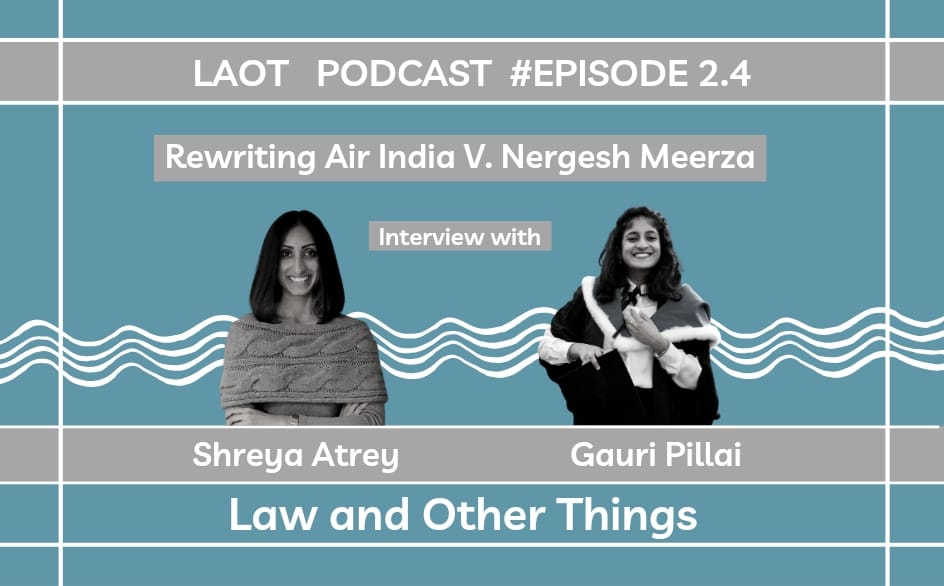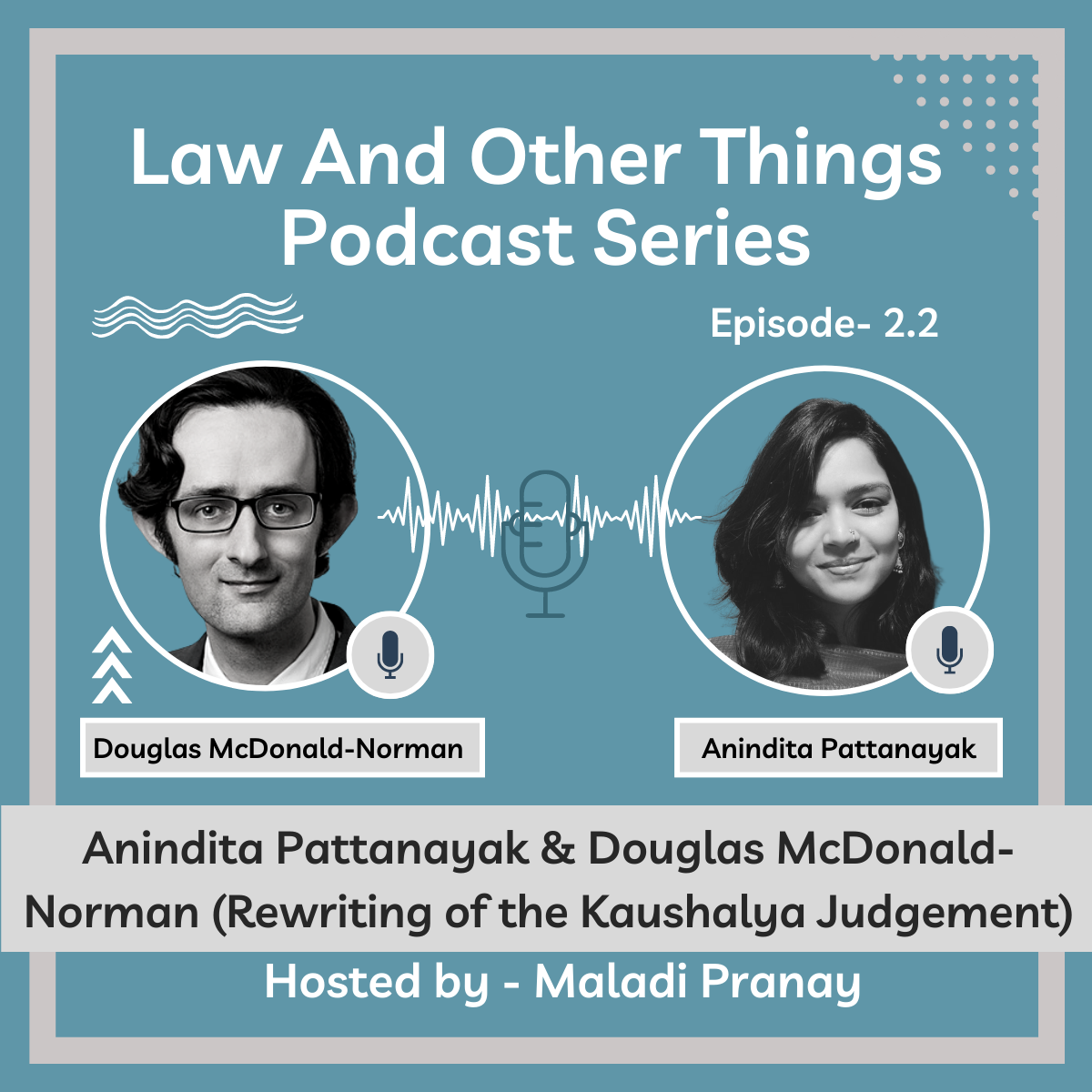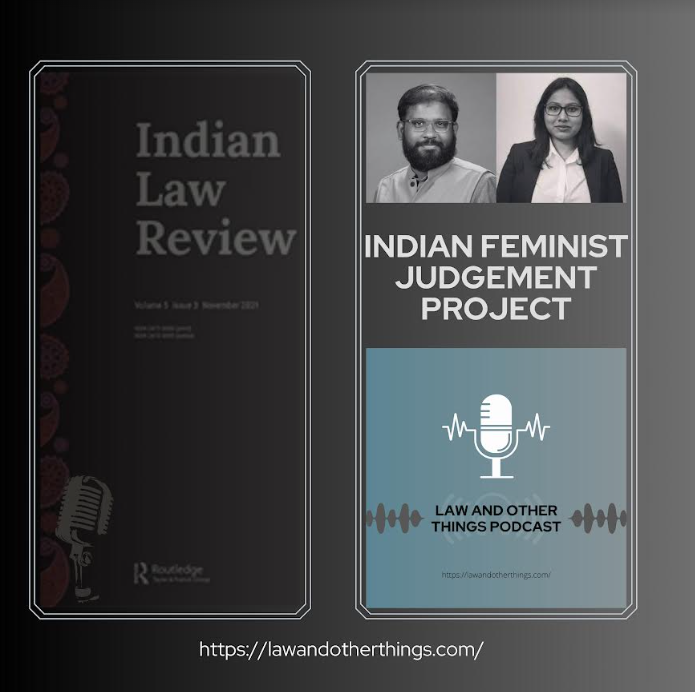While the Delhi High Court is currently grappling with the issue concerning the constitutional validity of the marital rape exemption,[1] it is important to analyze if the criminalization of marital rape will provide effective sexual agency to a married woman. In the era of Puttaswamy, a case can be made that the marital rape exemption is unconstitutional as it transgresses the right to privacy (which includes sexual agency) of the wife. This can be shored up by invoking Joseph Shine which extended this Puttaswamy principle to married women thereby declaring that individual privacy will get primacy over institutional privacy. Hence, it can be said that the foundations of the marital rape exemption, primarily the law of coverture, stand eroded after Puttaswamy and Joseph Shine. However, the Delhi High Court, during the hearings, has expressed qualms about criminalizing marital rape reasoning that a constitutional court might not have the authority to create an offence under the law. Be that as it may, if one thinks that the upshot of the criminalization of marital rape would be an effectual actualization of sexual agency in the institution of marriage, which our constitutional right to privacy envisages, then there is a need to revisit the family law lessons. In this post, I will explicate the normative conflict which exists between the narrative promoted by those who advocate for the criminalization of marital rape and the narrative which underpins our law of marriage and divorce (across religious frontiers). The ultimate aim is to show that even after (if) marital rape is criminalized, our personal laws will militate against actual realization of constitutional liberties, and hence, we should also demand for an overhaul of the connubial law regime.
Constitutional underpinning for marital rape criminalization: Justice Verma Committee Report[2]
It is, first, essential to understand the constitutional idea which underpins the demand for the criminalization of marital rape. In this regard, the reference is made to the Justice Verma Committee Report. The committee attributed the marital rape exemption to the common law of coverture which is undergirded by the antediluvian notion that a wife on getting married provides a tacit and irrevocable consent to have sexual intercourse on the whim of the husband. The committee, referring to foreign authorities concerning marital rape, suggested that the marital rape exception should be expunged from the Indian statute book. It also recommended:
“The law ought to specify that:
- A marital or other relationship between the perpetrator or victim is not a valid defence against the crimes of rape or sexual violation;
- The relationship between the accused and the complainant is not relevant to the inquiry into whether the complainant consented to the sexual activity;
- The fact that the accused and victim are married or in another intimate relationship may not be regarded as a mitigating factor justifying lower sentences for rape.”
And also observed:
“Changes in the law therefore need to be accompanied by widespread measures raising awareness of women’s rights to autonomy and physical integrity, regardless of marriage or other intimate relationship.”
What is relevant for this post is to understand the Committee’s reasoning for such recommendations which can be derived from the underscored words and can be encapsulated in the following statements: An individual’s sexual agency is not trammeled by her affiliation with the marital institution. Sex is a matter of individual choice and cannot be considered as an institutional entitlement. Hence, any man transgressing the principle of consent (which is founded on sexual autonomy) is bound to be guilty. In other words, sexual autonomy of individuals remains intact even after they get married.
Sex and Marriage: An institutional yoke
In this part we will see, whether sex is a facet of a married individual’s autonomy or is considered to be an essential ingredient of the very institution of marriage and a fundamental obligation of the spouse – from the vantage point of the marital law. After a survey of legislations and the case law on marriage and divorce law, the role of sex in marriage can be understood through the following stages:
- No Sex, No Marriage: Under Hindu personal law, the institution of marriage cannot be said to have established if the couple had not consummated the marriage. The law provides that the non-consummation should be due to impotency of the either spouse.[3] The legal understanding of impotency does not cohere with the general understanding. Firstly, potency, under the law, has nothing to do with an individual’s fecundity but is only concerned with his/her capability to have complete sexual intercourse. Secondly and importantly, impotency not only includes physical or mental disability but also psychological limitations like having a strong dislike for either generally the very act of sexual intercourse or particularly having the same with one’s spouse. This clearly shows that the law does not care whether you are actually impotent or not – if you cannot have sex with your spouse, then you are impotent – and since you did not have sex with your spouse, the marriage can be nullified. Further, the secular law even treats non-consummation due to willful refusal to have sexual intercourse as a ground for nullifying the marriage.[4] Therefore, a reading of Hindu personal and secular law on nullification of marriage tells one that sexual intercourse is not a matter of individual autonomy as the marital institution can only be established if both the spouses have sex, consensually, or otherwise.
- You ought to have sex regularly: The legal mandate for sexual intercourse does not end with the consummative sex. The same continues throughout the marital life. The Delhi High Court observed: “Marriage without sex is an anathema. Sex is the foundation of marriage and without a vigorous and harmonious sexual activity, it would be impossible for any marriage to continue for long.” This observation has been made or quoted with approval in a plethora of cases including those of the Supreme Court’s. Judicial decisions are rife with the principle that sex is an essential ingredient of marriage and a spouse has a fundamental obligation to have sexual intercourse with the other. The Courts have tried to defend this principle by providing an eclectic mix of reasons including the health benefits of sex. This approach has two implications: firstly, setting of a normative expectation of “marital behavior” which is that a normal and happily married couple ought to have sex regularly. What is problematic is propagating the notion that sex is what this institution demands and not merely a mutual decision of two individuals. Secondly, if one spouse has an obligation to indulge in sexual intercourse, the only possible sequitur is that the other spouse is entitled to it.
- Sex condones cruelty: In Dastane v Dastane, the Bombay High Court held, “sexual intercourse is evidence of both forgiveness and reconciliation and raises a presumption of condonation in the case of either spouse” and therefore, cruelty cannot be invoked as a ground for obtaining divorce. This was later affirmed by the Supreme Court. Therefore, no matter how much torturous and cruel the married life has been, if the couple is having sex then all is well. In the face of kicks, abuses and lies, if there is sex, the institution survives. It shows how significant sex is for the maintenance and survival of marriage.
- You don’t deserve to stay married: While the afore-discussed analysis shows that sex is a positive obligation of a spouse, pertinently, the law also stipulates a negative obligation when it comes to sex i.e. the obligation to not have sex with anyone other than your spouse. Two grounds for divorce – cruelty[5] and adultery[6] – show that if one transgresses this inviolable link between sex and marriage, then the institution is bound to collapse. It is a well settled principle of law of divorce, irrespective of the religion, that a spouse’s inability or willful refusal to have sexual intercourse amounts to legal and mental cruelty and the affected spouse is entitled to obtain a decree for divorce since the former “has failed to discharge the essential marital obligation of providing a sexual union which is a foundation of the marriage”. Further, adultery, as a ground for divorce, shows that sex is so inextricably linked to the marital institution that performing this activity with anyone other than your spouse shakes the very foundation of this institution.
A brief survey of the legal provisions and the case law shows that sex is so essential and significant for the marital institution that right from its inception through its maintenance and survival and right till its dissolution, it plays a dominant role. That is why, I refer to it as an ‘institutional linchpin’.
Normative Conflict
Husband: I want to have sex with you. Right now!
Wife: I have the freedom to not have sex with you.
Husband: Fine then! I am forsaking you.[7]
Wife: But, what is the point of my agency then?
Husband: Don’t forget, it’s your obligation too!
This conversation instantiates the normative conflict that exists between the two narratives: the narrative of individual liberty (which considers sex as a matter of agency); and the narrative of institutional linchpin (which considers sex as an obligation/entitlement). An individual has the absolute right to say no to sex but at the same time she can’t say no for long because of the threat of legal sanction (a decree for nullity or divorce). One might argue that at least the criminalization of marital rape provides sexual freedom temporally, that is to say, that an individual is bound to have sex but can refuse the same for that very moment. However, there are two issues with this argument. Firstly, a perusal of the concerned judgments shows that time plays an important role as neither the formative consummation nor the regular sex can be delayed for long. Secondly and mainly, is this really the kind of freedom we are fighting for? Can it even be called sexual autonomy in a real sense? True sexual agency entails carte blanche and not actions restrained by legal sanctions. Even though these two narratives are not mutually exclusive in law,[8] clearly the narrative of sex being an institutional linchpin militates against a true and effective exercise of sexual agency which the constitutional right to privacy envisages. Our Constitution demands that the individual should be given primacy over any institution. Therefore, this turf war between an individual and the marital institution for governing the sexual sphere has to be resolved in favor of the individual. This can only be achieved if all the provisions which promote the narrative that sex is an ‘institutional linchpin’ are expunged from our personal laws.
Sholab Arora, Advocate, Delhi High Court and Punjab & Haryana High Court. Linkedin: https://www.
[1]Exception 2 to Section 375 of the Indian Penal Code, 1860: “Sexual intercourse or sexual acts by a man with his own wife, the wife not being under fifteen years of age, is not rape.”
Note: the words “fifteen years” to be read as “eighteen years” by virtue of the judgment in Independent Thought v. Union of India, (2017) 10 SCC 800.
[2]To keep this article brief, the reference is made only to this report for understanding the narrative concerning the criminalization of marital rape.
[3]The Hindu Marriage Act, 1955, §12 (1) (a); The Special Marriage Act, 1954, §24 (1) (i); The Parsi Marriage and Divorce Act, 1936, §30; The Indian Divorce Act, 1869, §19. See also The Dissolution of Muslim Marriages Act, 1939, §2 (v) which entitles a Muslim wife to obtain a decree for divorce on similar grounds. Please note that the Hindu law was the same even before the legislation was enacted. See Ratan Moni Devi v. Nagendra Narain, AIR 1949 Cal. 404; A. v. B., AIR 1952 Bom 486. The same is the case for the Muslim law. See T. Rangaswamy v. T. Aravindammal, AIR 1957 Mad 243.
[4]See also The Parsi Marriage and Divorce Act, 1936, §32 (a) which considers the same as a ground for divorce.
[5]The Hindu Marriage Act, 1955, §13 (1) (ia); The Special Marriage Act, 1954, §27 (1) (d); The Parsi Marriage and Divorce Act, 1936, §32 (dd); The Indian Divorce Act, 1869, §10 (1) (x); The Dissolution of Muslim Marriages Act, 1939, §2 (viii).
[6]The Hindu Marriage Act, 1955, §13 (1) (i); The Special Marriage Act, 1954, §27 (1) (a); The Parsi Marriage and Divorce Act, 1936, §32 (d); The Indian Divorce Act, 1869, §10 (1) (i).
[7]Please note that a one-time refusal would not amount to cruelty. But, this conversation is a microcosm of the much larger normative conflict which is at play here.
[8]For instance, England has both – the law which criminalises marital rape and the law which has similar provisions for marriage and divorce as are discussed here.







Thank you, it was extremely informative, the only question I would like to ask is that is it possible to overhaul all the existing laws and Will UCC help in such case?
Is it possible to overhaul all the existing laws? Yes.
Will UCC help?
Really depends on if the Legislature will retain the provisions (discussed in the article) in UCC.
Can UCC help?
Really depends on the politics of it all.
If you suffered a head, broken bones, burns, or spinal cord injury in an auto accident and need to hire a highly experienced Auto Accident Attorney, then the Auto Accident Lawyer at the Baum Law Firm is the best choice for you.
Thank you for your sharing. I am worried that I lack creative ideas. It is your article that makes me full of hope. Thank you. But, I have a question, can you help me?
Your article helped me a lot, is there any more related content? Thanks!